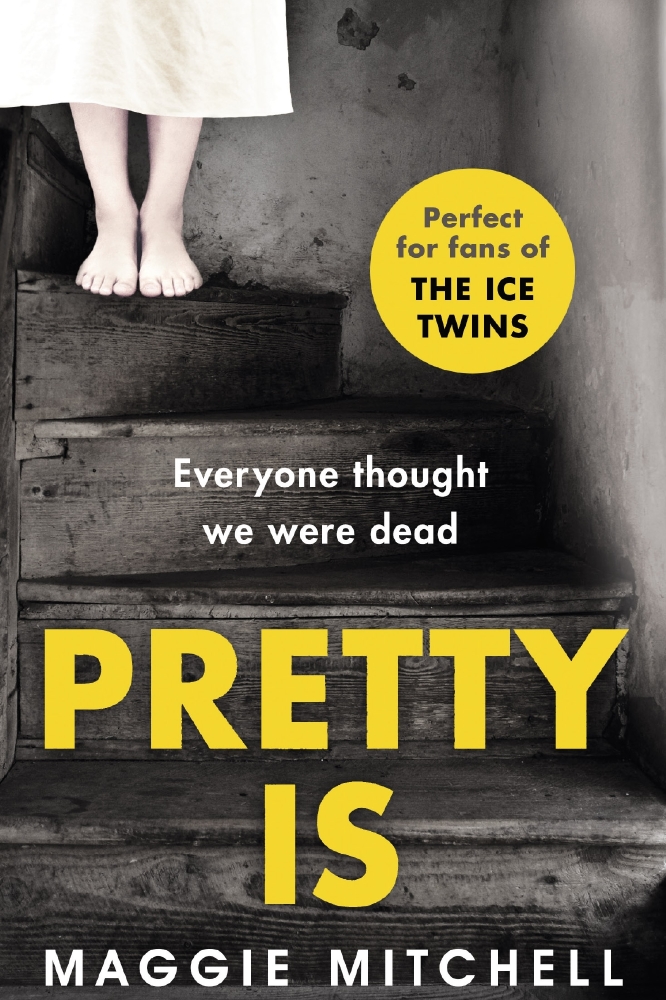Would you have gotten in the car? People ask me this all the time.

Maggie Mitchell
In my novel Pretty Is two twelve year old girls, miles apart, willingly climb into a car with a strange man who then holds them captive in the woods for six weeks.
Were you abducted? This is the other question readers ask. I was not abducted. I gave Lois, one of the characters in Pretty Is, an embellished version of my spelling bee history, but the abduction itself has no roots in my own experience. It was inspired, in part, by a newspaper article I read a long time ago: I was hooked by a brief news item about two girls, around twelve, who were abducted by a stranger and then escaped together several days later from the basement where he was holding them captive.
So my novel is about abduction-and then again, it isn't.
What really seized my imagination was the idea of the girls' escape, because they were strangers to each other, and an escape would have required an extraordinary degree of planning and collaboration; almost an ability to get inside each other's minds. I imagined it as a kind of telepathy. And because I remember all too well what it is like to be a twelve-year-old girl (not to mention that my old diaries offer documentary evidence that is equal parts poignant and mortifying), it struck me that this relationship would be complicated. Because twelve-year-old girls are really, really complicated. They are passionate and fierce, profoundly suspicious but eager to please, desperate for friendship but intensely competitive.
Two difficult twelve-year-old girls forced into close proximity, depending on each other for their very lives: that was what I wanted to write about. Moreover, it occurred to me that whatever bond they formed would hardly be severed when they returned to their old lives. Such an experience could only be profoundly formative: whoever those girls became would have everything to do with what happened to them during those days of captivity. So in a way, no one on earth would ever understand them as well as the strange girl with whom they had spent a few days in childhood. No one else would ever really get them.
In my novel, I alter the stakes of this relationship by extending the abduction to several weeks-and by making the kidnapper a charming, likable fellow, rather than a menacing attacker. Which is not to say that his very charm isn't menacing, in its own way. But, again, it's complicated. The girls, more or less willing accomplices, compete for his favor and attention.
Why do they get in the car? When mothers of little girls ask, they look as if they are afraid of what I might say. But then, they were once little girls, too, so I suspect they know the answer. Because while I lifted the skeleton of this story from the newspaper, the truth is that I dredged its heart from the secret depths of my twelve-year-old self.
Would I have gotten in the car? I don't know. I knew better, certainly; we all do. But my shy, bespectacled exterior concealed a reckless desire for experience; a desperate wish to be understood; a treacherous longing for everything to be different--for life to match the intensity of my feelings, the molten pre-adolescent chaos that I realize now was not nearly so peculiar as I imagined.
Sure, I might have gotten in the car. I think most of us might. And some of us do.


